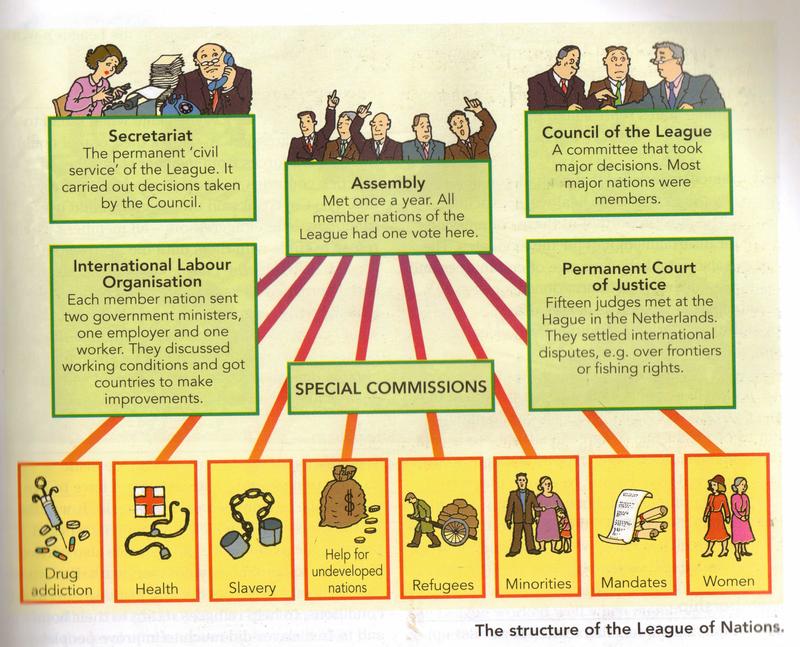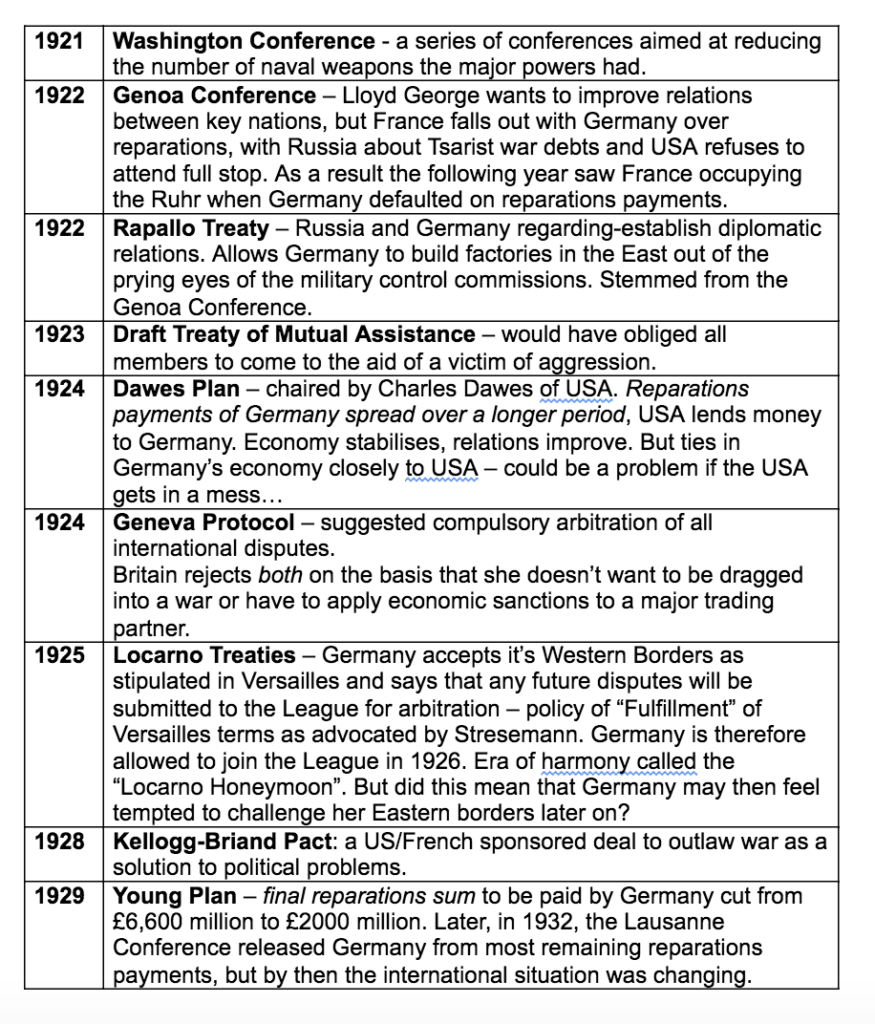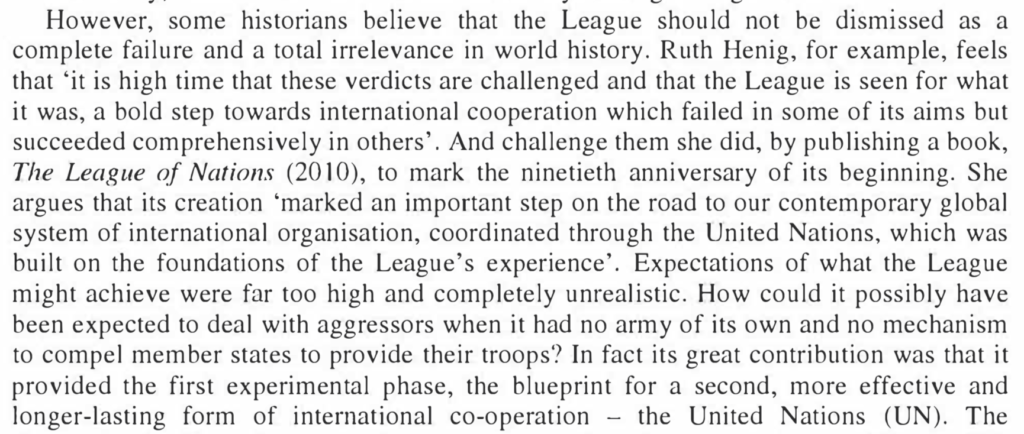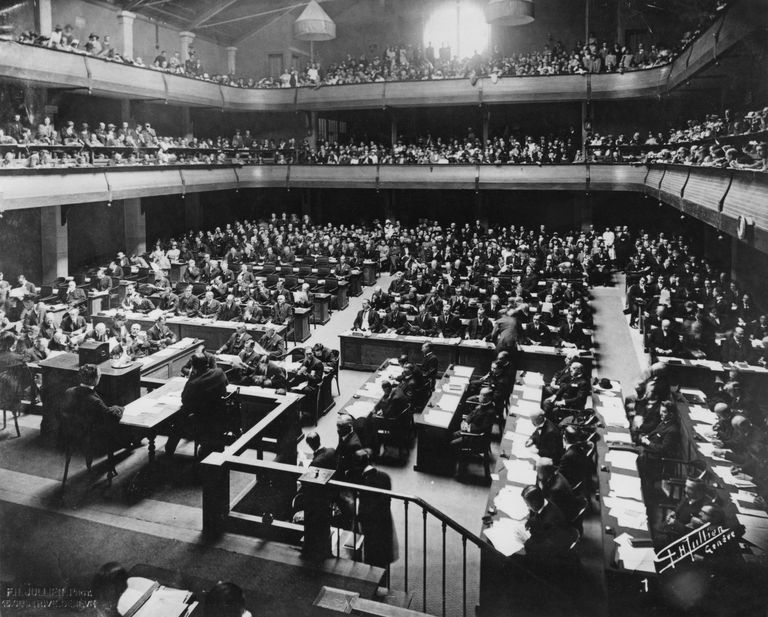What were the powers of the League?

A summary
This presentation gives a brief summary of the League powers.
The treaties and agreements of the 1920s
Watch the video above and evaluate the League’s successes during the 1920s. This is useful for analysing the consequences of the First World War.

The League of Nations undoubtedly had successes in the 1920s. Emotion (because of the First World War) may have been a factor in what the politicians and people strived to achieve during this decade.
Collective Security
from ‘The Failure of Collective Security in the Post World Wars I and II International System’ by Joseph C. Ebegbulem
- Collective Security (CS) meant that any aggression by one state would bring a response from all states.
- The principles of CS involves a willingness to apply sanctions as and when necessary and even to go to war. CS will never work unless all nations that take part are willing to either threaten sanctions or even war.
- CS based on four principles: states cannot use force unless for self-defence, an attack on one is an attack on all, all nations promise to halt aggression, and finally all to help with the supply of materiel and/or personnel resources.
Problems with Collective Security
- Arguably, it was idealistic because it made states ignore their own self-interest.
- Also, using military action as a key tool may prevent the use of other diplomacy.
- There is no common vital interest. Why should Paraguay help Malaysia for example?
- Nations may feel that any action is too risky.
- Powerful nations will have more influence on the veto.
- There is likely to be divided loyalties. Does a state choose to support the League or another nation instead?
- The USA was not a member of the League, its economic leverage would have been important to the imposition of sanctions.
- For both the Manchurian and Abyssinian crises, the League did not act as it should because of the two leading powers had their own agendas.
- Countries unwilling to give up their sovereignty.
- The League, arguably the UN too, has too much of a European influence. Nations from around the world did not trust the League as a result.
Perspectives
Ruth Henig explains the League’s Council and Assembly helped establish international norms of conduct between countries of all sizes. A spirit of Geneva promoted international collaboration and compromise, and there were many successes as a result. The organisation of the League was not what led to its failure, rather it was the international context which undermined it. Moreover, she argues ‘It is undoubtedly the case that expectations of what the League might be able to achieve were too high.’


